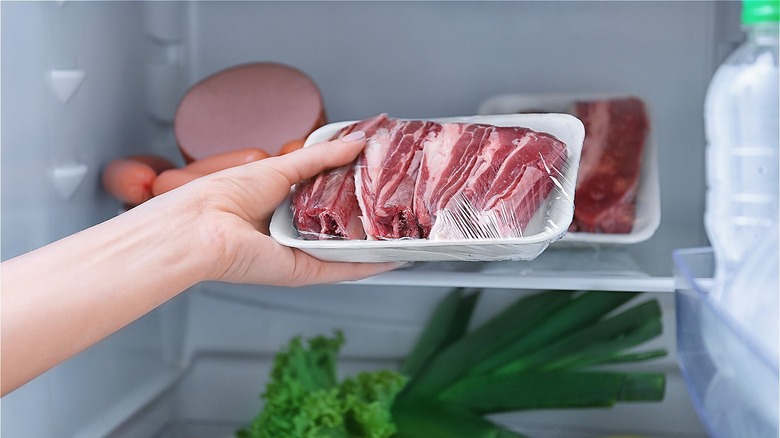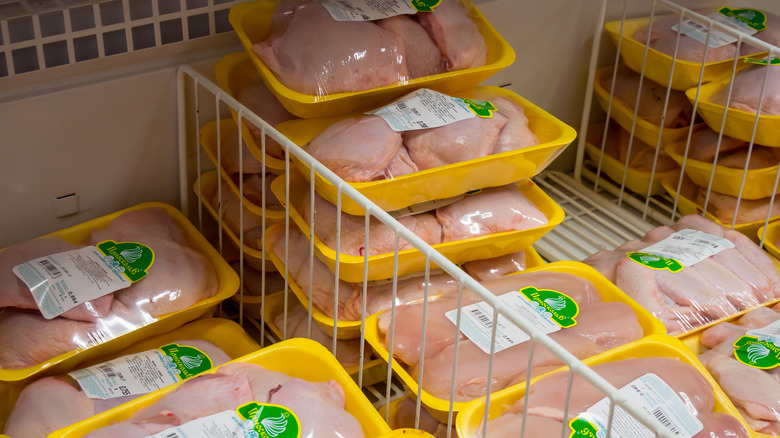How Long Does Raw Meat Last In The Fridge?
Expiration dates, "best by" dates, "sell by" dates ... there are many kinds of labels on the products we buy, telling us when we should use something. But are they right? Sometimes, there are different sets of dates on one product, and the struggle is particularly real when it comes to timing meat purchases and use. Because meats are raw, highly perishable, and expensive, the stakes are high when it comes to determining meat freshness. The "ick" factor is also very real with meat products, too (hello, fear of pink slime). Sailing the strait between food safety and food waste can seem especially hard to manage, especially when just getting around to buying groceries can be a challenge for many over-scheduled Americans (per Food Safety and Healthline).
Fortunately, Meredith Carothers, USDA Food Safety and Inspection Service technical information specialist, cleared up the confusion with some straight-shooting advice that cut through the tangled mass of misconceptions on this meaty matter. The biggest — and simplest — question when it comes to keeping meat in the fridge is "how long?"
The short answer? It depends. The key factors are what kind of meat and what cut you're dealing with.
Here's how long meat can stay in the fridge
The smaller the pieces of raw meat, the faster they should be used or frozen. According to USDA technical information specialist Meredith Carothers, "Raw whole cuts of beef, pork, veal, and lamb should be used or frozen within four to five days of purchase; ground meat and poultry should be used or frozen within one to two days, and whole cuts of poultry should be used or frozen within one or two days."
Another critical concern is whether meat can stay in its original packaging or not. Carothers says it's fine to keep meat as it comes; there's no need to transfer it to another container. Even when freezing meat, you can keep simply add another layer to prevent moisture from getting in and jeopardizing the integrity of its contents (per Healthline).
Does it matter where in the fridge you keep your meat? Not really, Carothers says, provided you're keeping your fridge at the right temperature to begin with. "The temperature in a refrigerator should be 40 F or below throughout the unit, so that any place is safe for storage of any food," she says. "Raw meat, poultry, and seafood should be in a sealed container." But if you can't use up your meats in that time frame, freezing them is always a good option. It saves waste and packaging — and gives you another shot at finally trying that meatloaf recipe you never seem to get around to.

